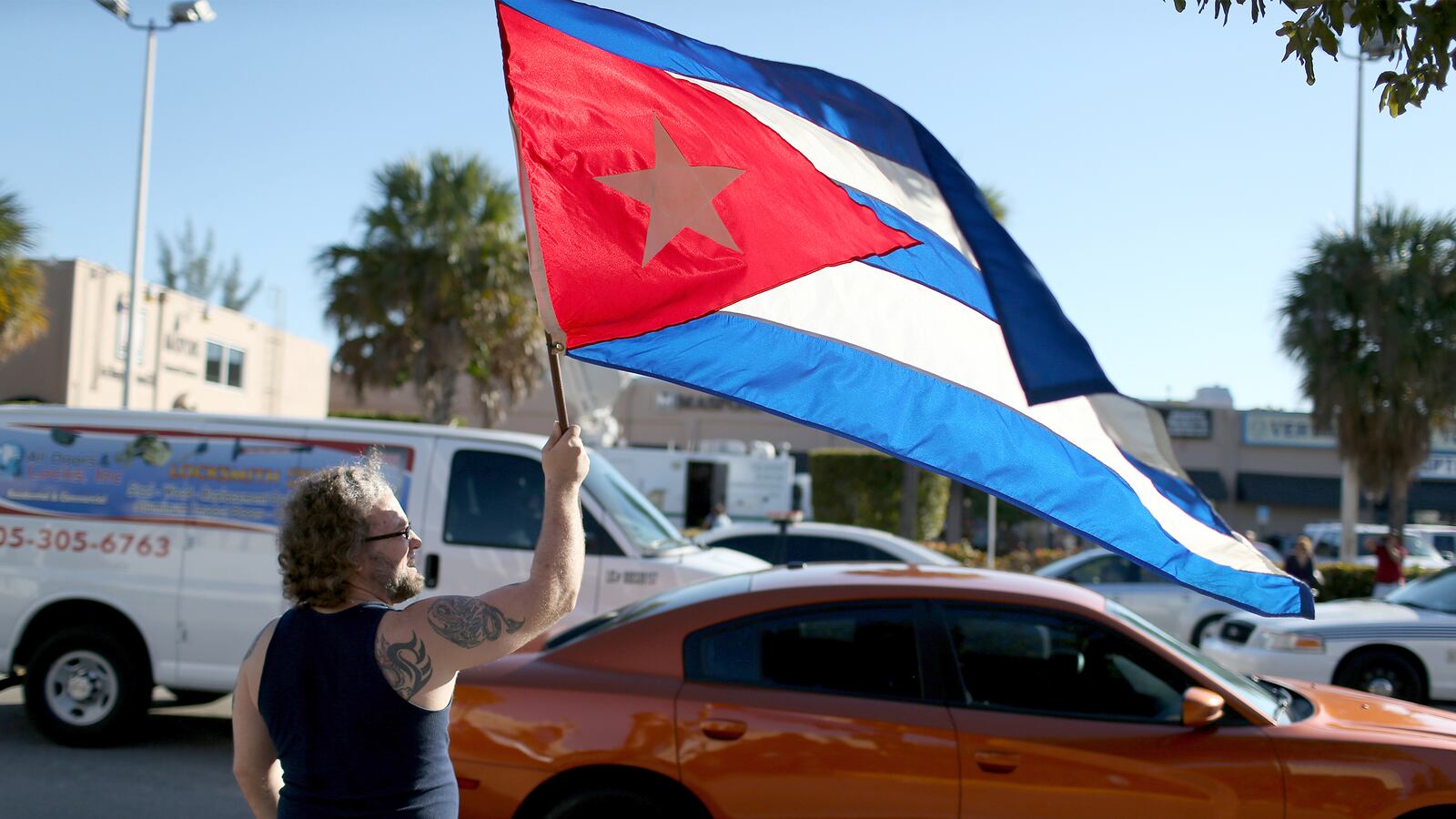After a half-century of frigid relations, the U.S. and Cuba have agreed to a thaw as the result of 18 months of secret talks. “These 50 years have shown that isolation has not worked,” President Obama told the American people in a historic statement on Wednesday. “Neither the American nor Cuban people are well served by a rigid policy that is rooted in events that took place before most of us were born.”
Here’s what it means in real terms for Americans and Cubans alike:
What were the terms of the un-sanctioning?
While not exactly BFF yet, but Cuba and the U.S. just became closer than they have since diplomatic ties were cut in 1961.
The key part of the deal to renew diplomatic relations was that Cuba agreed to release two Americans, including Alan Gross, an American contractor who was arrested in 2009 and sentenced to 15 years in prison, as well as an unnamed CIA agent who had been jailed for 20 years. Cuba also agreed to free 53 political prisoners, allow United Nations and Red Cross visits, and increase Internet access in the country—which many see as a key step toward democratization.
The U.S. got a relatively good deal—three Cuban spies were returned to their country in the swap.
What’s the immediate impact?
The U.S. will reopen an embassy in Havana, meaning an ambassador will be appointed. Right now, there’s already an American serving as a liaison between the two countries in Havana, and Jeffrey DeLaurentis is expected to get a big promotion before long.
This deal will greatly ease a travel ban and the trade embargo, and make it easier for Americans to do business in Cuba. As the U.S. Treasury and Commerce departments clear the way, American companies will be able to export goods to Cuba and visitors will have the ease of using American credit and debit cards while traveling in the country. They can also take back $400 in goods from Cuba and Cuban-Americans will be allowed to send $2,000 per year to family members on the island.
Will I be able to fly to Cuba now?
Despite the long-existing travel ban, Americans have already been visiting Cuba by the droves. In 2012, a record 98,000 citizens traveled to Cuba. By using Canada or Mexico as a gateway, it’s been a hassle, but not impossible, to skirt the restrictions.
At the moment, travelers can continue to visit Cuba through the government-sanctioned people-to-people exchange trips, which began under President Eisenhower, and was expanded by President Obama in 2011. And though the formal travel restriction hasn’t been lifted (so tourists are still not allowed), visitors will have a much longer list of choices —from professional research to “support for the Cuban people”—under which to list the purpose of their trip.
Commercial airlines can take a hint, and it won’t be long before they arrange a less circuitous route. JetBlue has been flying charter jets to Cuba for three years, and others are sure to follow. “Cuba could well become the fastest growing market for domestic carriers on a scale not seen for decades since deregulation,” the Daily Beast’s Clive Irving predicts.
Cuba lacks the infrastructure to handle such an influx, but a reliable flow of dollars probably means a build-up on the ground in the coming years.
What’s left?
The slate hasn’t entirely been wiped clean. There’s still an official travel ban and trade sanction in place, which can’t be lifted without Congress’ say-so. Many believe the embargo has been counterproductive —instead of encouraging the Cuban government to treat its citizens better, the suspension of American supplies has kept medical advances at bay, made life more difficult for ordinary Cubans, and not done anything to encourage a better human rights record.
What stands in the way of a normal relationship?
Both the Republicans in Congress and the American-Cuban community in exile have been speaking out against the warming relations. Through executive action, President Obama can greatly ease restrictions, but to fully erase all traces of sanctions, he needs Congress because there are multiple federal laws that must be repealed.
Despite a 2014 Atlantic Council report that that found the majority of Americans, of both parties, support lifting restrictions, the GOP hasn’t backed down. “There is no ‘new course’ here, only another in a long line of mindless concessions to a dictatorship that brutalizes its people and schemes with our enemies,” House Speaker John Boehner told reporters after the announcement. “If anything, this emboldens all state sponsors of terrorism..” Senator Marco Rubio was similarly adamant yesterday, calling out the White House for conceding “everything” and saying there was no hint of the Cuban regime transitioning to democracy.
Meanwhile, in Miami, where the majority of Cubans in the U.S. reside, anti-Cuba sentiment remains strong, but not as impassioned as in years past. Yesterday, as the news was announced, a small crowd protested the opening. “The Cuban exile community that has made a foundation out of standing firm against the Castro government has been, in essence, sold out,” Esteban Bovo, a county commissioner, told the Miami Herald.
There are a few loose ends that still need tying up: Cuba is safe haven to dozens of American fugitives who’ve been protected against the American judicial system for decades. These men and women will no doubt cause a tug a war in time.
Most importantly—can you get Cuban cigars now?
Smugglers: your services are no longer needed. American visitors to the island will now be able to pack $100 worth of previously illicit items in their suitcases, most importantly the near-mythical Cuban rum and cigars.




